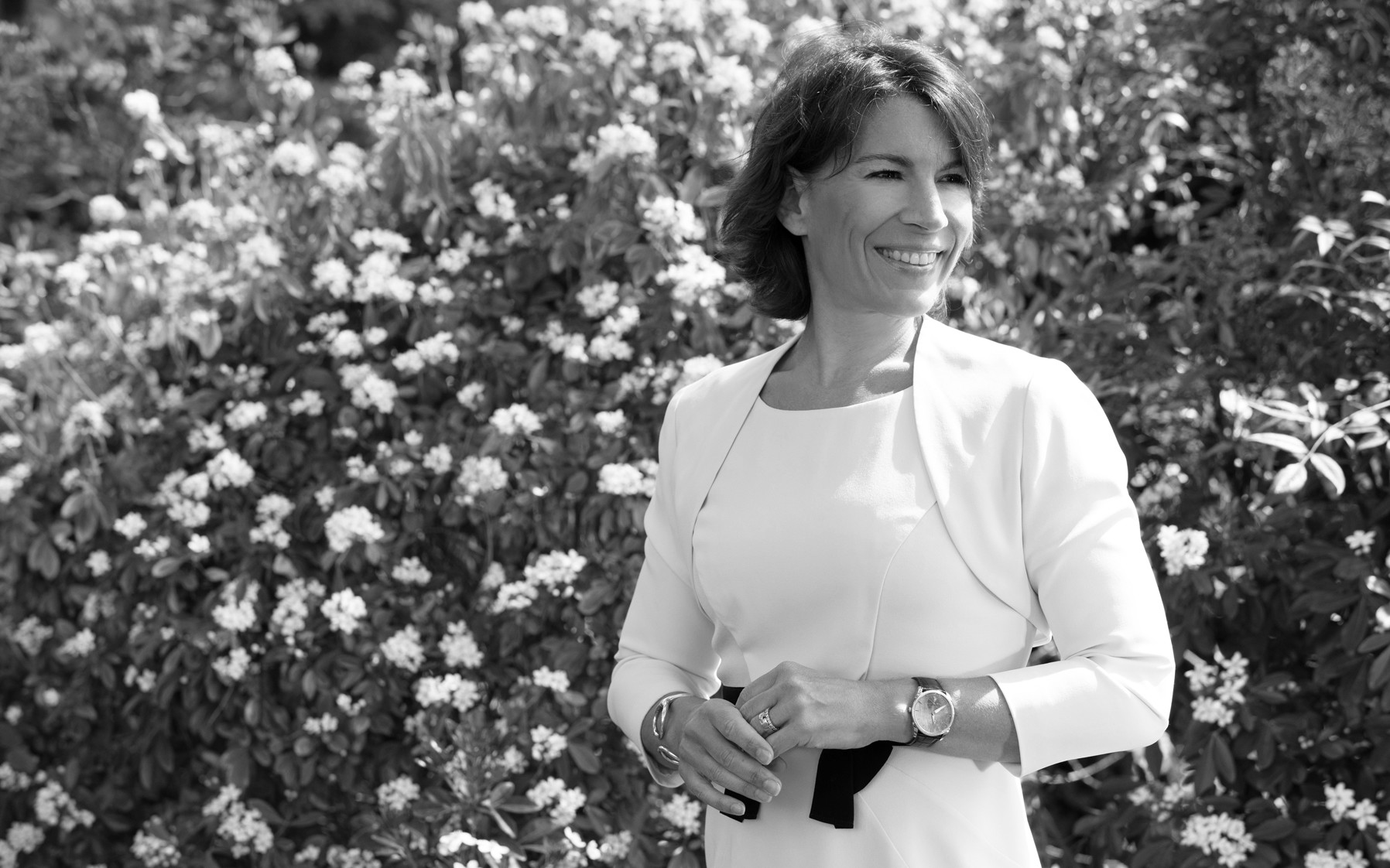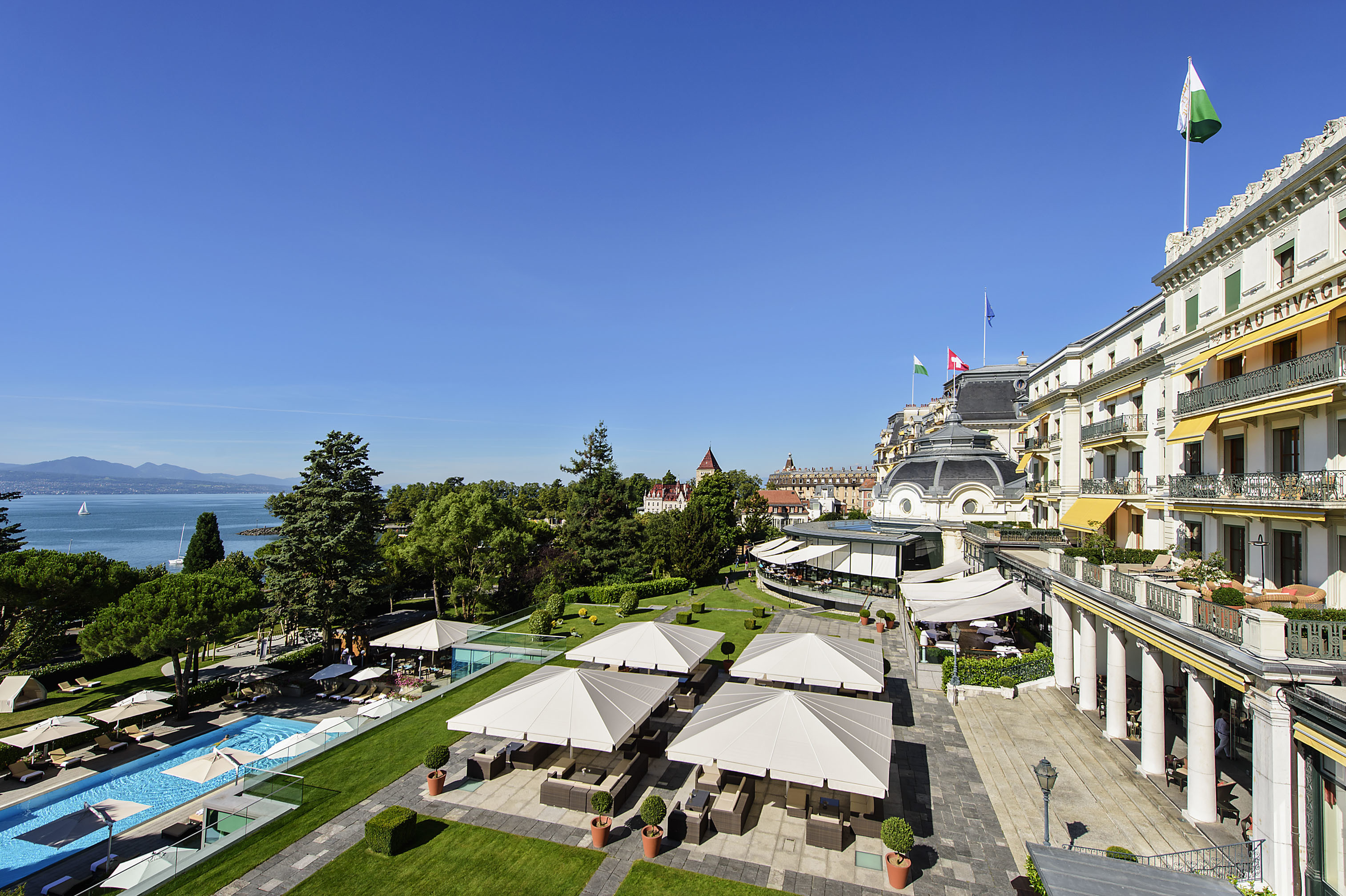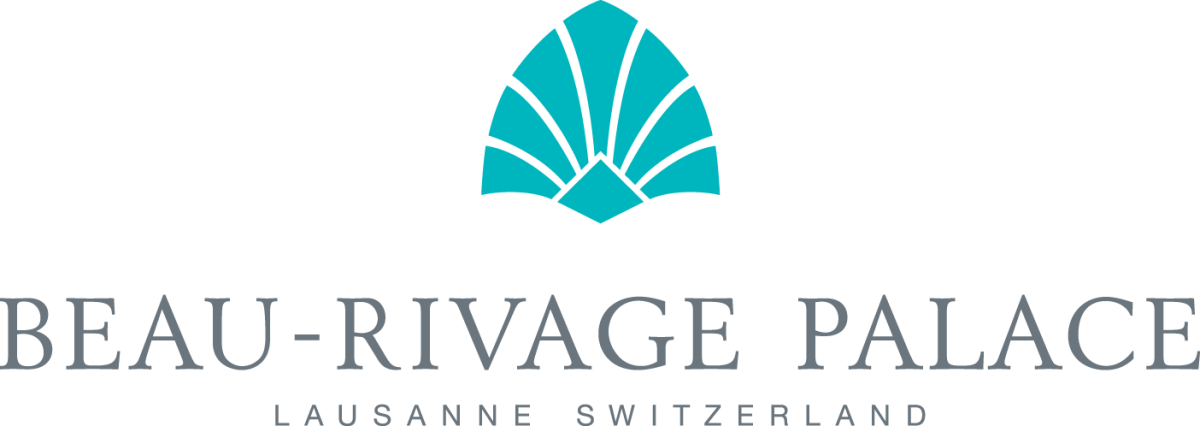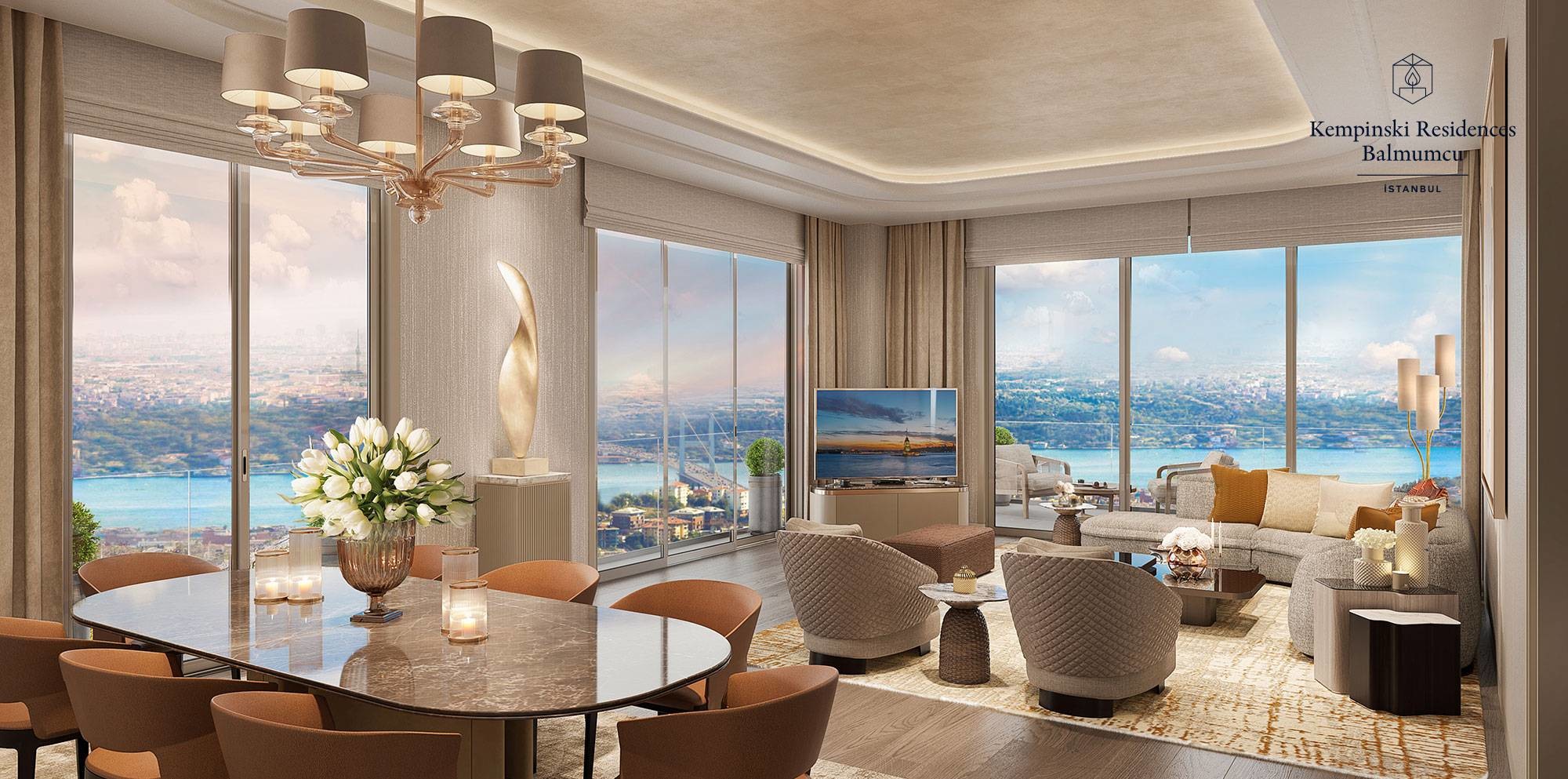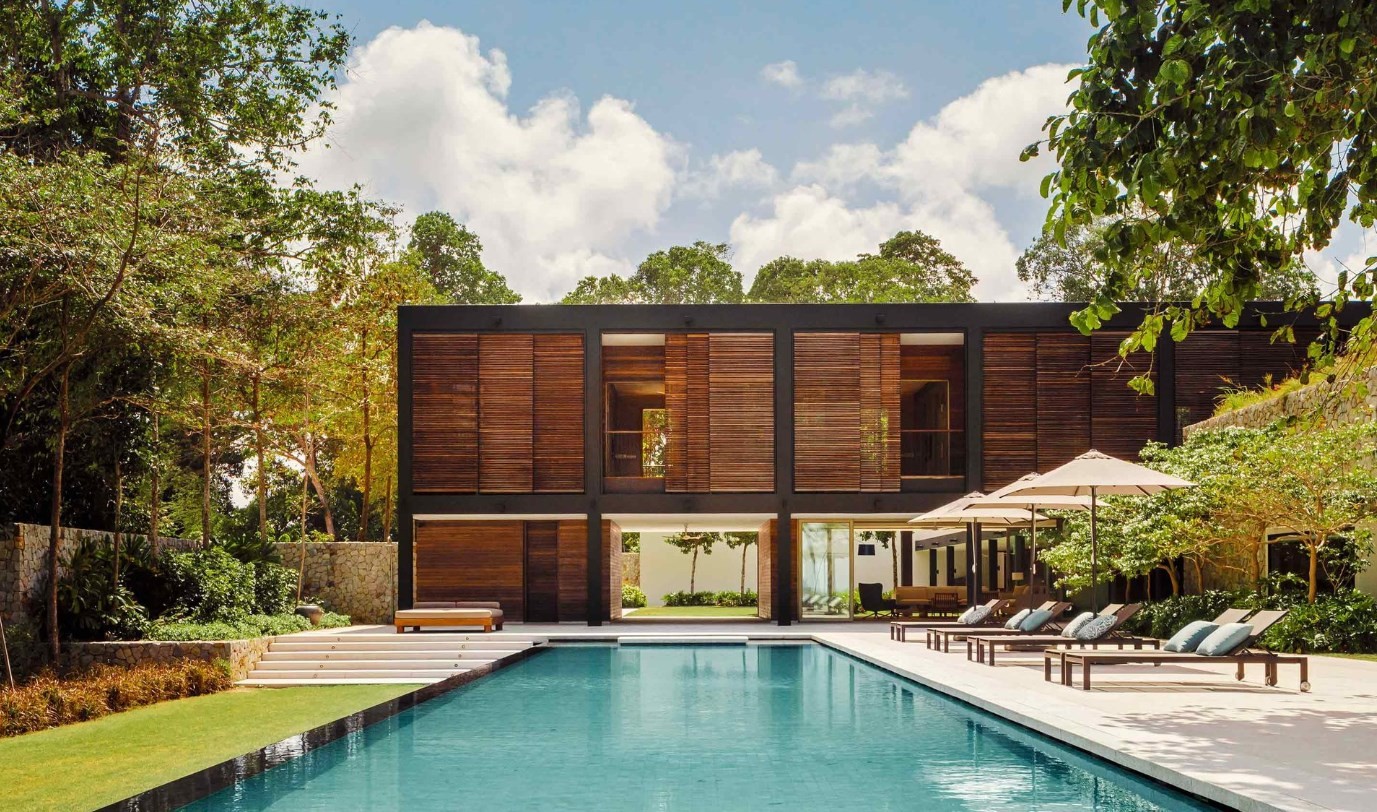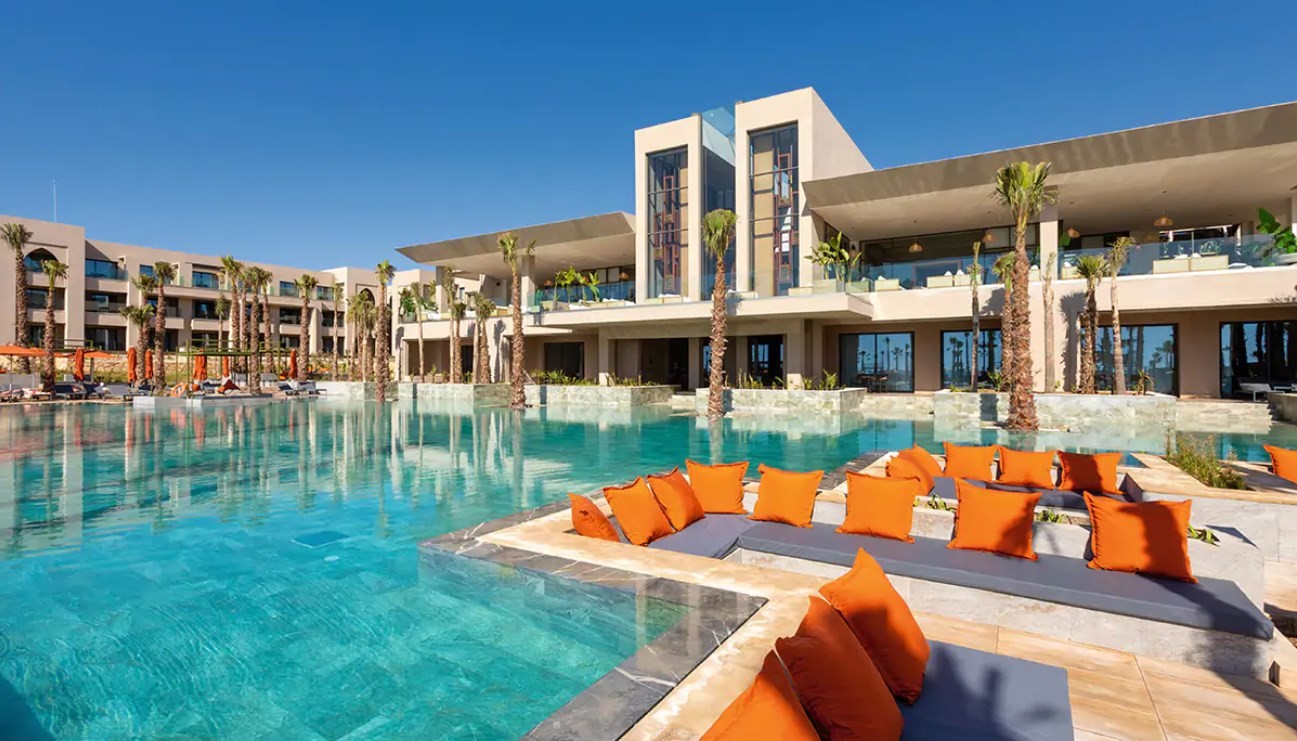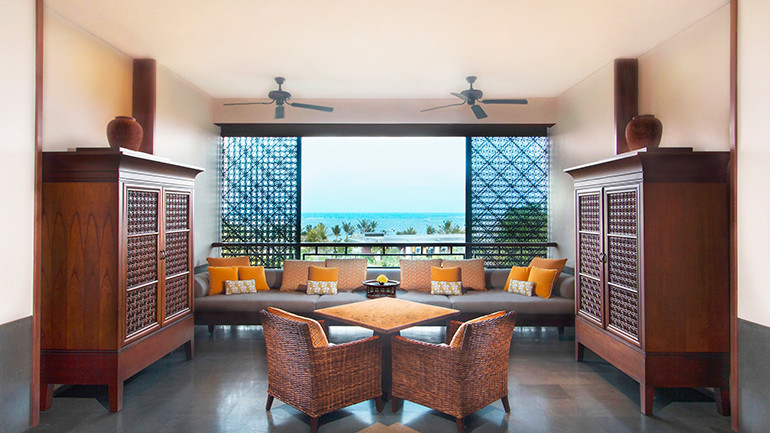As one of the flowers of Swiss luxury hospitality, the Beau-Rivage Palace (Leading Hotels of the World) always reigns, displaying its Belle Époque finery over the small world of exceptional hotels. Proudly positioned on the shores of lake Geneva, it is nestled in a garden landscape and presents facilities up to its elegance and excellence: a double starred-restaurant run by talented chef Anne-Sophie Pic and a huge spa named Cinq Mondes as a tribute to its treatments’ international inspiration… When she was hired as General Manager in 2015, Nathalie Seiler-Hayez added a new mythical address to her already outstandingly exceptional career, including positions at Le Regent Grand Hôtel (currently InterContinental Bordeaux Le Grand Hôtel) or the Connaught. She perpetuates her expertise and vision of luxury hospitality within the Beau-Rivage Palace in a spirit of simplicity, sharing and authenticity.
Vendom.jobs – As a former member of the École Hôtelière de Lausanne and now major actor of luxury hospitality, how do you play your role as a mentor?
Nathalie Seiler-Hayez – I take this role very seriously. Transmission is a part of a hotel manager’s mission. The last 30 years have marked an evolution in our service industry in hospitality and catering, which are not as appealing as they used to be. Our duty now is to encourage younger generations to join the sector. I would like to show how rich and diversified our industry is, as well as bearer of formidable opportunities. I do not know any other sector that is so hardly monotonous and so full of surprises.
V. J. – What are the recruitment issues of top-of-the-range hospitality in Switzerland?
N. S.-H. – In my view, they are the same as anywhere else and mainly depend on the mobility of younger generations. Nowadays, spending a whole career within the same establishment is rare; the opposite tendency is more common. Proper training implies the accumulation of experiences but without multiplying too short attendance times. The acquisition of a substantial experience requires position consolidation. Our clientele is increasingly international and leads me to encourage young graduates to travel so that they can discover and understand other cultures. Mobility is not an obstacle; it is quite the contrary, provided a good evolution strategy is implemented beforehand.

V. J. – What is your management philosophy?
N. S.-H. – For years, the accommodation industry has been operating though a pyramidal system presided by an almost omnipotent manager. Nowadays, organizations are becoming much more horizontal, as in any other sector. It is essential for a general manager to know when to reassess him/herself and to consult with people having another expertise. We are not omniscient. Of course, changing the company culture needs time. For my part, this horizontality gets along with my own participating vision of management, which implies being surrounded by talents and making decisions together.
On the other hand, young professionals are currently seeking meaning in their assignments. As managers, we must also instil this meaning, namely by addressing social changes, for example in fields like the environment, sustainability, etc.
V. J. – What are, in your opinion, the current main assets of Swiss top-of-the-range hospitality? And what are its main difficulties?
N. S.-H. – The Swiss have the reputation of being too modest – a character trait preventing them from making themselves conspicuous and that has an impact on the image of the Swiss accommodation sector. Except for the great and glamorous mountain venues in prestigious ski resorts, Switzerland does not offer a very dynamic image of Swiss tourism. To compensate this extreme restraint, I believe that we, actors of luxury accommodation of Lake Geneva, should gather together. We have extraordinary assets, particularly due to our very ancient hotel heritage and our imposing landscapes. Safety is one of the other very attractive dimensions of Swiss tourism. The country is also synonymous for rigour, quality… There are many huge palaces for such a so small country. It should also be remembered that Switzerland is the cradle of Grand Hotel business and our mission is to make this fabulous heritage come to life.
V. J. – How does Swiss high-end hospitality manage to face the strong competition of emergent destinations and of new travel patterns (last minute, rentals, etc)?
N. S.-H. – Grand Hotel business, together with its palaces and codes, attracts and will always attract demands. Namely because of its human service dimension that keeps outdoing itself to always go further. Present time is an ultra-personalisation era. We make people feel how unique they are. We perpetuate this beautiful heritage because we have the means to innovate and offer incomparable experiences.
Perhaps paradoxically, the advantage we have is that rentals stimulate hoteliers to reinvent themselves. However, a traveller who seeks a rental has a different approach than the traveller who is fond of high-end hospitality. This is the reason I still have much confidence in the future of our palaces. We maintain an emotional bond with our customers, which perpetuates from one generation to the other. What makes this possible, of course, is the human dimension of our work. The more you move up within the luxury range dimension, the less the emphasis is set on the product, but rather on the attention paid to the customer.

V. J. – When managing a historical location, with an international aura, what is the perfect balance between the perpetuation of an heritage and the (future-oriented) vision?
N. S.-H. – This is an issue that all historical luxury hotels encounter: finding the balance. Once again, I think that it is possible through the understanding of current issues. A return to certain values of wellbeing, of reconnection with the essence and authenticity.
V. J. – It was often pointed out that you were the first woman to manage the Beau-Rivage Palace, whereas you led other European prestigious addresses in the past. Have you ever felt, during your career, any difference in treatment in high responsibilities positions like management?
N. S.-H. – Personally, I have not. Women are undoubtedly more emotional, which is a great quality in the accommodation industry, as our role is to generate emotions. During my career, all my superiors were men. I owe them a lot – they always supported me and allowed me to develop a potential. I never felt any impediment in my career related to this very issue.
The problem is a little different in boards of directors, where members are predominantly men and, as a group, the dynamic – and our approach – evolves differently. As I already mentioned, this is more a question of characters and of personality interaction. The question of gender does not really make sense against competences. This is why management implies a good self-knowledge and a perfect identification of your strengths and weaknesses.
V. J. – The Beau-Rivage Palace always conveys the idea of a magical venue. However, the concept of ‘experience’ seems to have overcome the term ‘stay’. In your view, what would be the magic recipe for this “experience”?
N.S.-H. – Describing this recipe in a few words is not an easy task, as an experience is something you live. An experience is made of a quantity of very small details that will affect the customer and instil the desire to come back, that is an attention which would be paid to the customer in a very personal way. Let me give you an example. Let’s imagine a few customers sitting at the bar and expressing their appreciation of the olfactory environment of the place. Very discreetly, we would place a candle diffusing that very fragrance in their room as a gift, accompanied by a short note. When a moment becomes magical, the staff identifies it and continues to make it live for the customer.
V. J. – What is your personal luxury?
N. S.-H. – Time would be the first thing that comes to mind. Time for yourself is important. In our industry we give a lot of ourselves and much of it passes through emotion. Moreover, having a family means being torn between your personal and professional life. Having a few more hours for yourself is a true luxury! If you want to give, you have to feel good. These moments really do me good, I find them in sports and in landscape contemplation during a walk…
(Photo credit: Beau-Rivage Palace)


